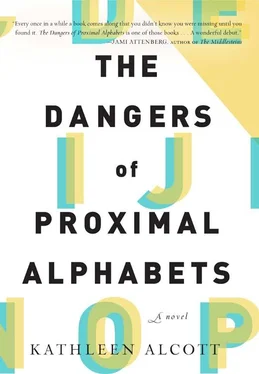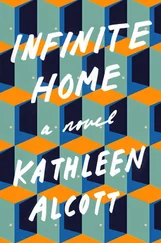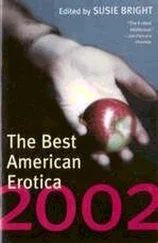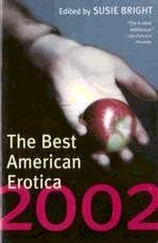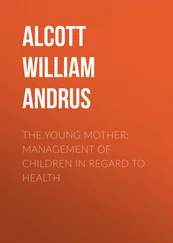Kathleen Alcott
The Dangers of Proximal Alphabets
This book is dedicated with manifold variants of love
to Casey Cripe, a brilliant narrator.
“if there is a place further from me I beg you do not go”
— FRANK O’HARA, “Morning”

Our parents liked to say that the first time Jackson and I met, we concentrated our focus so intently, grew so still, that they worried our little bodies might have forgotten we’d exited our watery beginnings, neglected the duty to breathe in and out. On the floor of the living room we turned our still-soft skin toward each other and blinked before demonstrating our talents in gripping and releasing: my five fingers around his chubby wrist, then his in embrace of mine. They say that the cat, our relative equal in size but a fascinating stranger in composition, strolled up to sniff the crowns of our heads, our full cheeks, but we offered him no attention. My mother and father and Julia, sitting on the couch, all happy with disbelief at the way their endlessly curious infants had quickly adopted such content with a tiny corner of the universe.
The next part of the story, the one that would echo for decades afterward: Julia moved to scoop Jackson from the floor. I left my quiet behind and howled with such force that the cat, still skirting the carpet, panicked and ran. My mother came to me and attempted comfort; my father, at the door with Julia, shrugged and offered a comment about the volatile nature of young love. They laughed, of course, and agreed to bring us together again very soon. Jackson did not cry, but squirmed from Julia’s restraint and tried to get a clearer vision of me. My wailing gained confidence and rhythm. I refused, even, the draw of my mother’s breast, as if I knew that she would not be my family much longer, that I would find that elsewhere.
That night my parents broke their oath to leave me in the crib, no matter how upset, and brought me into their bed. They wondered at me where I lay between them, linked their fingers over the heaving abdomen they’d created together, sang me folk songs about low roads and high roads, told me the word for each part of my body, whispered secrets about the ocean and the brain and the patterns of the earth until I finally calmed enough to listen.

Jackson has one green eye and one brown, though each is dotted with bits of the other color, as if hesitant to vehemently commit. He has a mole on his left hip (noncancerous, last time he checked) and half a BB bullet permanently lodged in his right shoulder blade (I put it there). His cheeks are wide and globular, as if they were hiding apples for later consumption, and give him the appearance of someone instantly trustworthy and kind. He is uncircumcised, but his foreskin is unusually taut and so this isn’t obvious. The hair on his chest issues forth in small tight curls, and halfway across the spirals change their direction. He pronounces “often” with a harsh “t.” When he picks up the phone he goes, “ ’Lo?!” in mock surprise to be hearing a voice from the magic box in his hand. He is a master with chopsticks. He is endlessly polite to the men at corner stores, taxi drivers, weary all-night-diner waitresses. He once dove into the polluted river in our hometown to retrieve a necklace of my mother’s after the well-used clasp broke, and contracted a rash that lasted two weeks (he wasn’t embarrassed). He talks in his sleep, among other things. He has a tattoo of my name on his chest that he insisted on during the throes of a melodramatic fugue (which is rare for his character) when we were seventeen. A mutual friend in a motel room (where his brother James worked the front desk) administered the ink at four a.m. with a questionable needle. He is incredibly gifted with children, though he always refused to discuss the possibility of having any. He is left-handed and secretly proud of the fact, the implication of genius. He once rode a shopping cart down one of the steepest hills in our city just for the hell of it; in addition to the half BB pellet, there is a bit of gravel, resulting from the inevitable crash at the bottom, that is also permanently part of his body. He is not traditionally handsome but most are tricked into thinking so. There are many items of clothing he has owned for more than ten years and still wears. His second toe is longer than his big toe. He goes through phases of intense love, then hatred for Indian food (it gives him explosive diarrhea). He is endearingly cranky in the mornings but inherently an early riser, and he gives up coffee every six months, swearing this time it’s for good. He likes to wear a mustache, but only when accompanied by a beard. If you go to a museum with him, he will unfailingly wander off by himself. He is a talented drinker but rarely seems drunk. He is a library of facts about the ocean. His body temperature is always one to two degrees higher than the average 98.6 and so sleeping with him feels like being in an intimate position with a furnace. He has a way of narrowing his eyes when he is annoyed or suspicious, and a way of ridiculing someone without their noticing until it’s too late. He absolutely spurns astrology; his handwriting has a way of changing to suit the occasion. He can roll his r ’s quite well and, if he chooses to, speaks pretty decent Spanish. He whistles while he urinates. He always carries a knife and uses it (in handy versus violent ways) every chance he gets.
He cries infrequently, and when he does it is silent with a great deal of shoulder shaking. He does his best thinking in the ten minutes after a visit to a planetarium. He can curl his tongue into a U and also a “clover,” and is a talented eyebrow raiser. There is a spot with a half-inch circumference below his left jaw where hair does not grow; he has bizarre theories about why. Most of the time he has illicit fireworks purchased in Chinatown on his person. He adores Burnese mountain dogs and lights up at a sighting of one.
I use the present tense here, but it is possible that Jackson actually has given up coffee, that he has covered the tattoo of my name with something else, that he cries openly in front of this new woman. It has been a year, two months, and six days since we spoke. It has been four months since, in a moment of loneliness that came not late at night but early on a sunny morning, I called him and left a message he didn’t return. The last of his belongings and mementos of Us sit in a box in the back of my bedroom closet; though I resist the urge to take it down and finger the black-and-white photo booth strips, the silly tin science-fiction lunch box I bought him that he loved fiercely, the only remaining piece of art he made in his sleep, I know the objects so well that I’m not sure what difference it actually makes.

Officially, I’m Ida, though Jackson has called me I as long as I can remember. The symbolism is sickening. Even in the worst of it, even in phases where I spoke almost exclusively in monosyllables and guttural sounds and sat around lost in the worn flannel shirt he left behind, I would never bring this up to anyone: and he calls me I. Like I. As in myself.
In a particularly memorable home video, shot by my father who poured his monomania exclusively into filmic evidence of our childhood for a full year before quitting pretty much entirely, Jackson and I are sitting in a sun-faded kiddie pool in my front yard, aged three and a half or four. There’s something in my hands Jackson wants but can’t have — the camera zooms and focuses — it’s a set of brightly colored rubber rings — and he looks right at the camera, at my father, at justice, and cries: I want it but I has it!
Читать дальше
